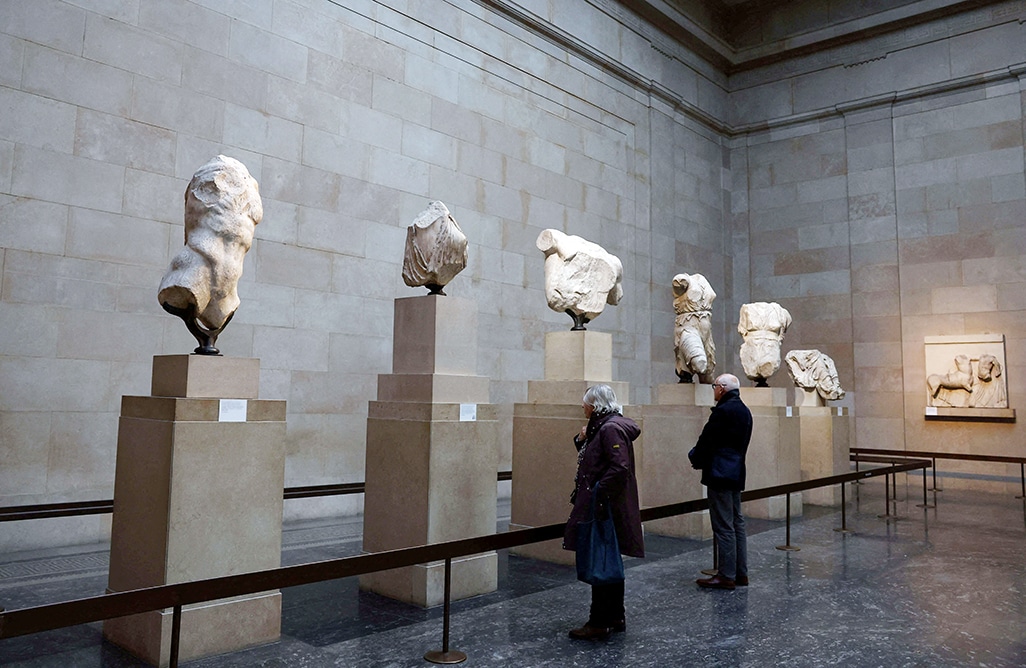Greece’s Prime Minister Kyriakos Mitsotakis has repeated calls for the return of the Parthenon Sculptures to Athens from the British Museum, months after a diplomatic spat with Britain over the 2,500-year-old pieces.
In his first public statement on the issue since November, Mitsotakis said his government has been in talks with the Chair of the British Museum about a deal to bring them back to the Acropolis Museum in the heart of the Greek capital.
“Let me be clear, we will insist on their reunification for many reasons. But one, in my mind, is the most important: Only by being seen together, in situ, in the shadow of the Acropolis, can we truly appreciate their immense cultural importance.”
Athens has repeatedly called on the British Museum to permanently return the 2,500-year-old sculptures – known in Britain as the Elgin Marbles – that British diplomat Lord Elgin removed from the Parthenon temple in 1806, during a period when Greece was under Ottoman Turkish rule.
About half of the 160-metre frieze that adorned the Parthenon in Athens is in the British Museum, while 50 metres of the carvings are in the Acropolis Museum.
In November, during an interview with the BBC in London, Mitsotakis compared the separation of the sculptures to cutting the Mona Lisa in half, a characterisation rejected by the British government.
British Prime Minister Rishi Sunak later cancelled a planned meeting with Mitsotakis accusing him of breaking a promise not to use his trip as an opportunity to advocate for the return of the sculptures.
Greece has said it would be willing to loan antiquities to the British Museum in return for being able to temporarily exhibit the sculptures in Athens.
The British Museum has said it would consider loaning the sculptures to Greece if it acknowledged the British Museum’s ownership of the sculptures.
Separately, the British Museum and London’s Victoria and Albert Museum announced on Thursday that under a long-term loan deal they would send gold and silver artefacts looted by British soldiers from the Asante royal court in West Africa during the 19th Century back to Ghana for display.







Click here to change your cookie preferences